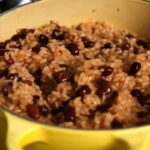Eggs are a nutritious food for the elderly, offering benefits for heart health, blood pressure regulation, and digestion. According to nutrition experts, the right way to cook and consume eggs can bring about various health advantages for seniors.
1. Benefits of Eating Whole Eggs
While egg whites have long been favored for their low-fat, high-protein content, mounting scientific evidence suggests that eating whole eggs (both the yolk and the white) provides superior benefits for muscle building.
A 2017 study found that consuming whole eggs increased muscle protein synthesis by 42% compared to eating egg whites alone, despite both providing equal amounts of protein.
This is especially significant for the elderly, who are prone to muscle loss due to aging. Muscle loss affects approximately 5-13% of individuals aged 60 and above, with the rate increasing to 50% in those over 80.

Adhering to the best way to eat eggs for seniors can help mitigate muscle loss.
2. Why Are Egg Yolks Important?
Contrary to the old belief that yolks are detrimental to heart health, expert Udeshi asserts that egg yolks contain essential nutrients that support muscle building and recovery.
Specifically, yolks provide the following nutrients:
- Healthy fats: Help balance hormones and aid in vitamin absorption.
- Cholesterol: Necessary for testosterone production, which promotes muscle growth.
- Vitamins A, D, E, and K: Support muscle recovery, boost immunity, and aid in energy metabolism.
- Choline and selenium: Crucial for brain health, nerve function, and antioxidant defense.
Additionally, whole eggs are a complete protein source, containing all nine essential amino acids. While egg whites contain these amino acids too, the substances in the yolk enhance the body’s absorption and utilization of protein, creating an optimal environment for muscle development.
3. The Best Way for Seniors to Eat Eggs
Not just for athletes, whole eggs are also a nutritious choice for older adults. Including 1-2 whole eggs in the daily diet can help:
- Prevent muscle loss
- Enhance strength and mobility
- Support memory, bone health, and immunity

Seniors should aim for 1 to 2 eggs per day for optimal bone health.
Experts advise that eggs are a nutritious and safe food when consumed in moderation. However, individuals with underlying health conditions should consult their doctors before making dietary changes.
Instead of discarding the yolk, the best way for seniors to eat eggs is to utilize the whole egg to maximize its health benefits. Eggs are particularly crucial for maintaining muscle mass, strong bones, and combating aging.
7 Types of Fish You Should Buy Immediately: Nutrition Comparable to Ginseng, Cheaper than Bird’s Nest, Free of Chemicals
“Forget spending a fortune on ginseng or bird’s nest soup. The following seven types of fish are the ultimate ‘superfoods’ that can be easily found at your local market. Packed with essential nutrients and free from harmful chemicals or growth hormones, these fish are an affordable, accessible, and delicious way to ensure your family’s health and well-being. Simply choose wisely, and you’ll be serving up tasty, nutritious, and budget-friendly meals in no time!”
Superfood Forgotten: Purslane, Nature’s Beauty and Health Secret.
Water spinach, a humble vegetable that is a familiar sight on Vietnamese dinner tables, boasts an impressive nutritional profile. Packed with vitamins and antioxidants, it is not only beneficial for overall health but also acts as a natural “sunscreen” for the skin. Despite its exceptional qualities, water spinach remains underappreciated in many rural areas.






































